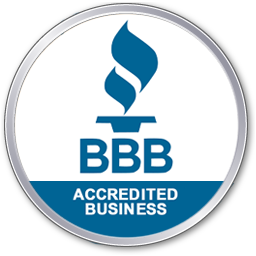A lot of people don’t give a second thought to where the water comes from when they turn on the faucet in their home, especially if they rent, or own a home in the city. But if you have a house with a well, be aware that there are steps you should take to ensure that the well water you drink, cook and clean with, and bathe in is safe.
Generally, well water is every bit as safe as water from a municipal source and in many cases is safer because it’s treated with fewer chemicals (e.g., chlorine dioxide and sodium chloride), if any. The taste of well water is often preferable, too, for the same reason and because of the higher mineral content.
If you own a house with well water, or you’re thinking about buying a house with a well, read on to learn more about how you can make sure your family’s water supply is safe.
Buying a House with a Well
When you think of a well, it might conjure up images of a deep, round hole in the ground surrounded by a brick wall and an apparatus above ground that has a handle you crank to draw up a bucket from down inside the well, or a lever you pump to make the water flow. That’s how it used to be done a few generations ago, and still is in some places. But these days, of course, most residential wells are constructed to be compatible with indoor plumbing — at least in the U.S.
If you’re planning to move to a rural area, then there’s a good chance that you will be buying a house with well water. If you haven’t already thought about that, here’s what it means.
Instead of city water, which normally comes from a river or lake and is treated at a municipal facility to remove potentially dangerous pollutants, your water supply will come from deep within the earth. Residential wells are typically from 100 to 800 feet deep, although some are 1,000 feet or deeper. The water comes from an aquifer, which is a fancy term for a layer of porous rock or sediment that holds rainwater. A submersible pump draws the water up through a pipe (usually surrounded by a well casing) and into a pressure tank, where it’s stored for usage.
When your home has city water, you pay a monthly fee to cover the costs of having the water treated to make it safe. But when you have a house with a well, the responsibility for making sure it’s safe falls on you. On the other hand, you don’t have to pay the water bill every month.
If the home you’re thinking about buying has well water, check to see if the home inspection will include the well. Not all states require that wells be inspected when homes are bought and sold, and each state varies as to who is licensed and qualified to inspect wells and test well water.
What to Consider When Using Well Water
As we noted earlier, well water is perfectly safe and healthy — as long as you take the right precautions. While groundwater is generally considered purer than water from other sources, it can still become contaminated with bacteria, chemicals and parasites, and high levels of minerals such as iron, copper and lead can create problems.
Many times, you can’t smell, see or taste contaminants and impurities in well water, which is why it’s so important to have your well inspected on a regular basis.
Something else to be aware of is that well water is usually “hard” water. That’s from the higher mineral content. Limestone, chalk and gypsum are often the porous types of rock that form aquifers, and as precipitation seeps through these layers of rock it picks up minerals such as calcium and magnesium.
High concentrations of these minerals can cause build-up in your plumbing system. Hard water can also present cleaning challenges, leaving spots on your dishes and shower doors. Fortunately, water softening systems are a simple solution.
What Else Could Be in Your Well Water?
We’ve already cautioned you about some of the undesirable contaminants that can be found in well water. The best ways to prevent the problems associated with these contaminants and impurities are regular testing and making sure your well is properly maintained.
At Alpha Environmental Services, we test well water for:
- Arsenic – Can occur in the soil and rocks naturally but can also be from industrial waste
- Coliform bacteria – Can indicate the presence of E. coli
- Dissolved solids – Refers primarily to minerals, salts and metals; most do not cause health issues but can affect the taste and cause scale buildup and corrosion
- Hardness – Can cause mineral deposits to form on fixtures and water spots on dishes and glasses; can also cause skin and hair to be dry
- Lead – Older wells might contain lead in part of the seal or in some components of the submersible pump
- Nitrates – Some occur naturally at a level that won’t cause health issues, but high levels suggest a source such as fertilizers, a septic system or animal waste
- pH level – The higher the pH level, the harder the water; water that’s too soft, or acidic, can be corrosive and leach metals from pipes
- Silica – Found naturally in quartz; can cause etching on glassware, a white film on glass and deposits on porcelain and chrome
- Sodium – Along with dietary issues, high sodium levels can increase your water’s mineral content, corrode plumbing and shorten the life of your hot water heater and appliances
About the Well Itself
There are three types of residential wells, based on how they are created, and the risk of contaminated well water varies accordingly.
- Wells dug with a shovel or backhoe. These are the most shallow — usually about 10 to 30 feet deep — and are lined, or cased, with stone, brick or some other sturdy material to prevent them from caving in. Well water from this type of well is the most likely to be contaminated because it pulls groundwater nearest the surface, and because the casing is not continuous.
- Wells constructed by driving pipe into the ground. Although the casing for this type of well is continuous, well water can still be fairly easily contaminated because these wells are also relatively shallow (normally about 30 to 50 feet deep).
- Drilled wells. These are the deepest (often hundreds of feet or more), and they require continuous casing, so they have the least risk of contamination. The mineral content will also likely be higher — which can be good in terms of health-related benefits.
Along with how deep your well is, you’ll also want to consider its flow rate, where on the property it is located, and whether there are any groundwater issues in the area.
The flow rate is pretty simple. It’s the amount of water that flows from your well and is generally measured as gallons per minute, or gpm. Whether your well can meet the demand of your household depends on how many people will live in your home. In general, wells that yield a flow rate of 5 gpm can fulfill the needs of most homes.
If possible, your well should be on an elevated part of the property so that rainwater drains away from it rather than toward it, to help reduce the risk of contamination. There should also be at least 50 feet between your well and the septic system. Depending on local ordinances, there may be other factors to take into account when assessing your well’s location.
The best way to determine whether there are any problems with the groundwater near your home is to contact a local water expert like Alpha Environmental. You can also visit the Environmental Protection Agency’s website to find contact information for state and municipal agencies that provide well water services.
Five takeaways about wells and well water
Although no two wells are alike, here are five basic points to keep in mind if you own or are planning to buy a house with a well.
- If your well is properly located and well maintained, the well water is most likely at least as safe as water from a municipal source.
- You won’t have a monthly water bill if you have a house with well water, but it’s up to you to make sure the well stays in good condition and the water is safe.
- The depth of your well matters. In general, the deeper the well, the purer the water.
- Well water with impurities can be treated to make it safe for you and your family. A water softening system can make hard water less of an issue.
- Many contaminants and impurities are hard to detect simply by the taste, smell or appearance of your well water. That’s why it’s important to have your well inspected and your water tested by a licensed professional on a regular basis.
Contact the Well Experts at Alpha Environmental
As you can see, owning a well comes with responsibilities — but there may also be financial advantages and possibly even health advantages.
Before you buy (or sell) a house with a well, give us a call at (503) 292-5346 and find out how we can help, from inspecting the well and advising you about any existing groundwater issues to testing the water and water flow.




